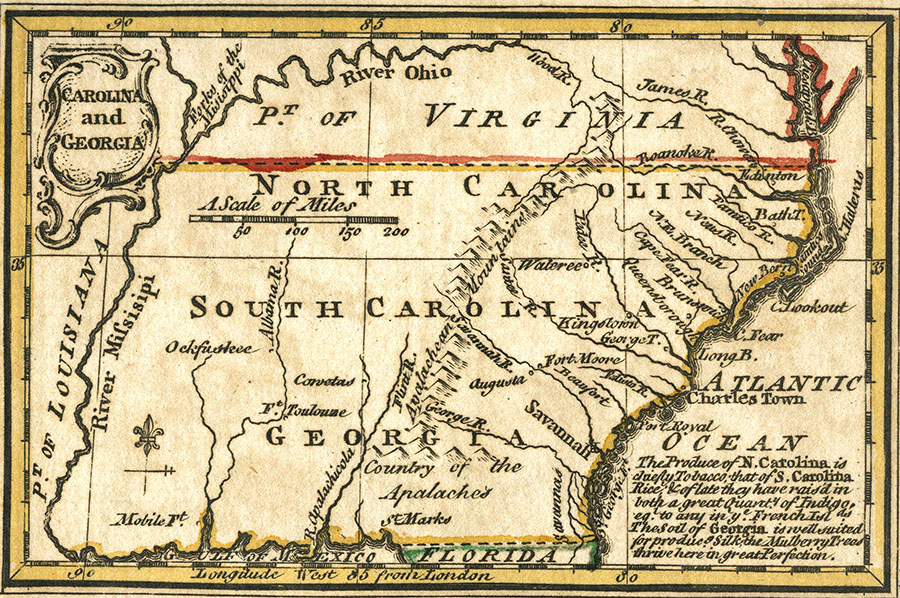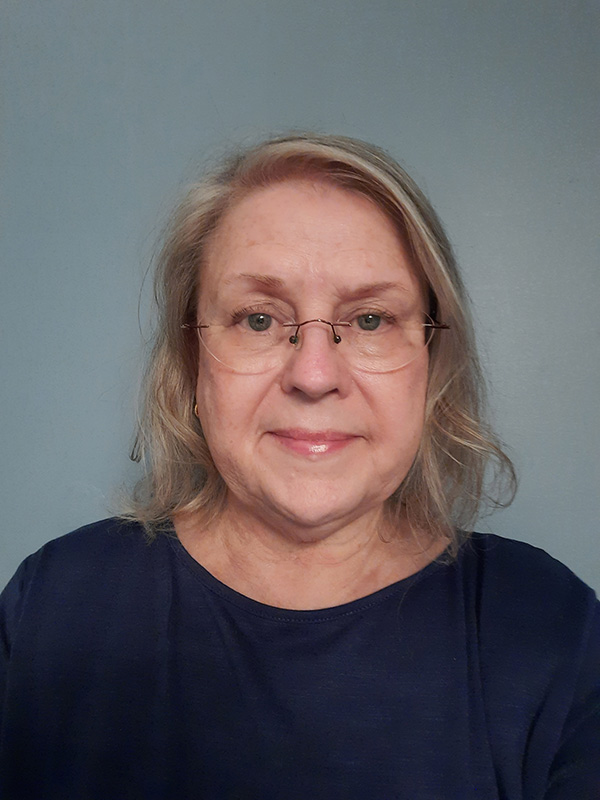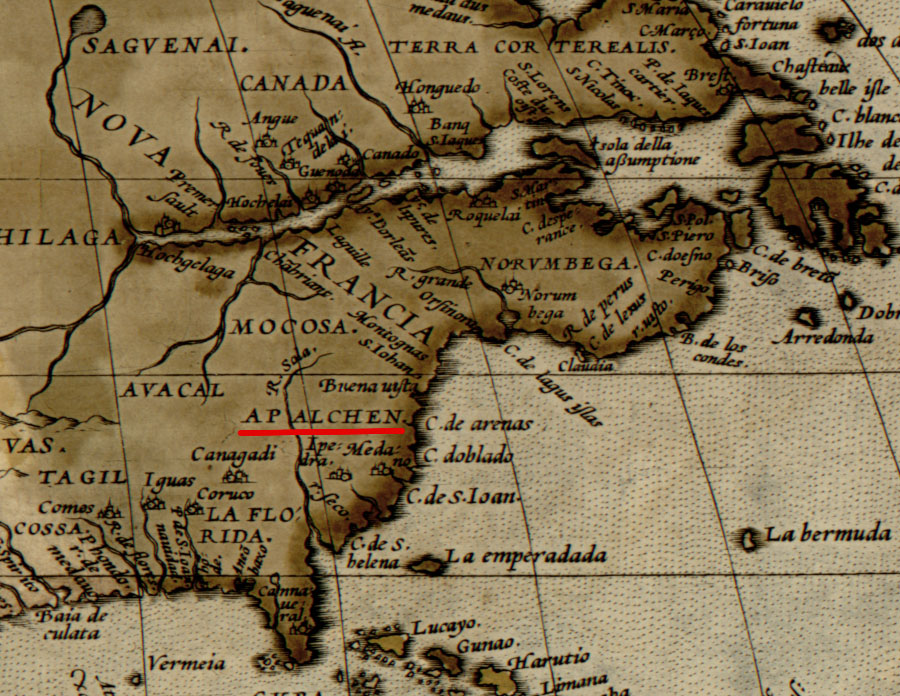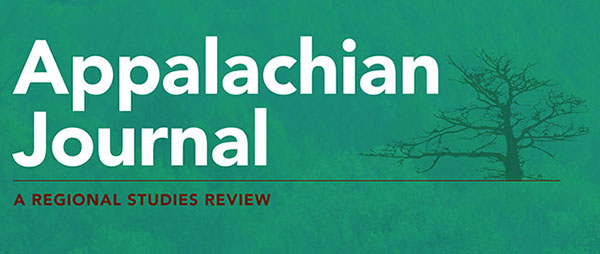
This 1758 map, authored by English cartographers Emanuel Bowen and John Gibson, shows the “Apalachaen Mountains” region of Georgia, South Carolina, North Carolina and part of Virginia. According to App State’s Dr. Sandra Ballard, professor in the Department of English and the Center for Appalachian Studies, 16th century mapmakers splayed the word ‘Apalche’ (and other spellings) — indicating the homeplace of Native Americans called Apalachee — across large inland areas of the U.S., leading others to take it to be the name of the mountain region. Image courtesy of the David Rumsey Historical Map Collection
BOONE, N.C. — At Appalachian State University, Mountaineers have a preference in the pronunciation of Appalachian: “appa-latch-un.”
According to the online Merriam-Webster Dictionary and several others, both “appa-latch-un" and “appa-lay-shun,” an alternative pronunciation, are acceptable. The history behind the region’s name — both its spelling and how to say it — spans cultures, centuries and languages.
“The way you pronounce ‘Appalachian’ probably reveals where you learned to pronounce it. If you grew up in or near Southern Appalachia, you probably say ‘appa-latch-un,’” said Dr. Sandra Ballard, who retired from App State in 2024, following a 24-year career as a faculty member in the Department of English and the Center for Appalachian Studies. “People who pronounce their vowels differently in other regions, or who have heard media newscasters say ‘appa-lay-shun,’ move ahead confidently by repeating what they’ve heard.”
Appalachian is the word applied by early mapmakers to eastern U.S. mountain ranges, stretching from northern Georgia to Canada, said Ballard, who also served as editor of the university’s Appalachian Journal.
“French Huguenots — a religious group of French Protestants in the early 16th century — used ‘Apalche’ (and other spellings) on maps to indicate the homeplace of Native Americans called Apalachee who lived in northern Florida,” Ballard said.
In the Apalachees’ native language, the Apalachee name is derived from “apala,” meaning “great sea,” combined with “chi,” which translates to “those by the sea” — according to the essay “On the Naming of Appalachia,” by Dr. David Walls, a noted sociologist in the field of Appalachian studies.
Walls wrote that early mapmakers, confused by vague accounts of locations and distances reported by explorers, pinned the location of the Apalachee territory further north. Early map designations influenced subsequent maps.
Ballard said, “Not knowing precisely where the Apalachee lived, mapmakers splayed the word across large inland areas, leading others to take it to be the name of the mountain region. Spellings on maps from the 1500s suggest 'appa-latch-uh' as the older pronunciation.”
Ballard noted regional differences exist in the pronunciation of Appalachian — as is true for many words. “English spoken in Boone sounds different from English in Pittsburgh — or in Beech Mountain, for that matter. Vowels and consonants roll out as various sounds in different locations, often depending on who settled there and when,” she explained.
Those in the northern Appalachian region tend to pronounce the word “appa-lay-shun,” while those in the central and southern parts of the region pronounce it “appa-latch-un,” Ballard said — noting that pronunciation variations are a way for those from Appalachia to proudly assert their identity.
A light was shone on the region during the 1960s War on Poverty — the social welfare legislation introduced by U.S. President Lyndon B. Johnson — and television reporters and government officials referencing the area commonly pronounced the mountain region as “appa-lay-shun” or “appa-lay-she-un.” Consequently, audiences became familiar with those pronunciations.
“No matter where you live, whenever someone varies the pronunciation of a familiar location, your language radar picks it up. Historical context, politics and economics, education and cultural expectations influence what you do next,” Ballard said. “When you travel to Appalachia, you carry your homeplace in your mouth and will likely say the word the way you learned to say it. Then it doesn’t take long to learn how the locals say it.”
For the Mountaineer take on the proverb, “When in Rome, do as the Romans do,” it is recommended: When at App State, say “appa-latch-un.”
What do you think?
Share your feedback on this story.
About the Department of English
The Department of English at Appalachian State University is committed to outstanding work in the classroom, the support and mentorship of students, and a dynamic engagement with culture, history, language, theory and literature. The department offers master’s degrees in English and rhetoric and composition, as well as undergraduate degrees in literary studies, film studies, creative writing, professional writing and English education. Learn more at https://english.appstate.edu.
About the Center for Appalachian Studies
The Center for Appalachian Studies promotes public programs, community collaboration, civic engagement and scholarship on the Appalachian region. The center is committed to building healthy communities and deepening knowledge of Appalachia’s past, present and future through community-based research and engagement. Learn more at https://appcenter.appstate.edu.
About the College of Arts and Sciences
The College of Arts and Sciences (CAS) at Appalachian State University is home to 17 academic departments, two centers and one residential college. These units span the humanities and the social, mathematical and natural sciences. CAS aims to develop a distinctive identity built upon our university's strengths, traditions and locations. The college’s values lie not only in service to the university and local community, but through inspiring, training, educating and sustaining the development of its students as global citizens. More than 6,800 student majors are enrolled in the college. As the college is also largely responsible for implementing App State’s general education curriculum, it is heavily involved in the education of all students at the university, including those pursuing majors in other colleges. Learn more at https://cas.appstate.edu.
About Appalachian State University
As a premier public institution, Appalachian State University prepares students to lead purposeful lives. App State is one of 17 campuses in the University of North Carolina System, with a national reputation for innovative teaching and opening access to a high-quality, cost-effective education. The university enrolls more than 21,000 students, has a low student-to-faculty ratio and offers more than 150 undergraduate and 80 graduate majors at its Boone and Hickory campuses and through App State Online. Learn more at https://www.appstate.edu.







![How NCInnovation Is Rethinking Economic Development in North Carolina [faculty featured]](/_images/_posts/2026/02/rethinking-economic-development-600x400.jpg)






